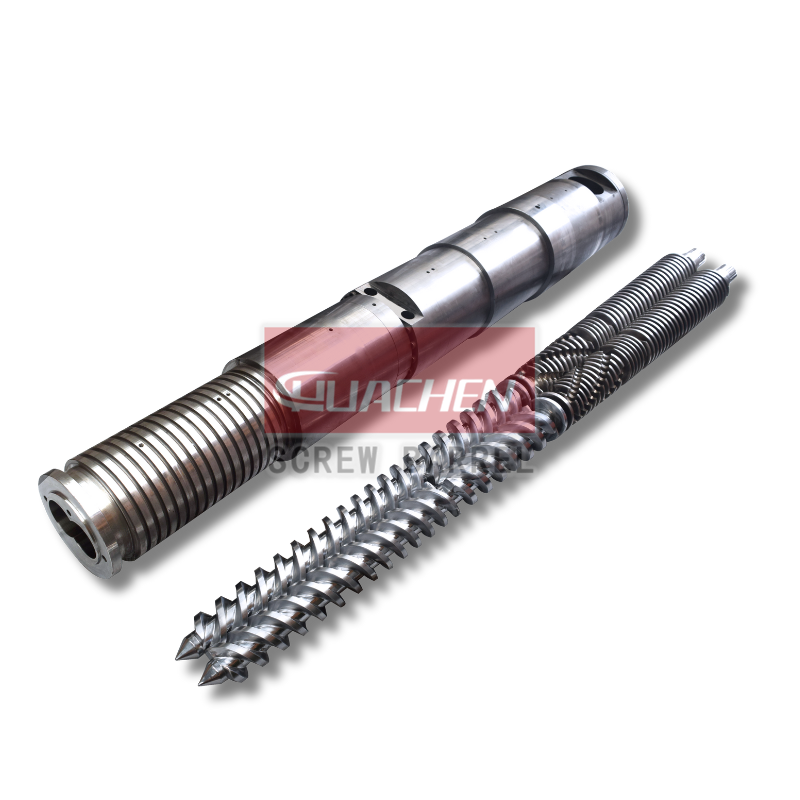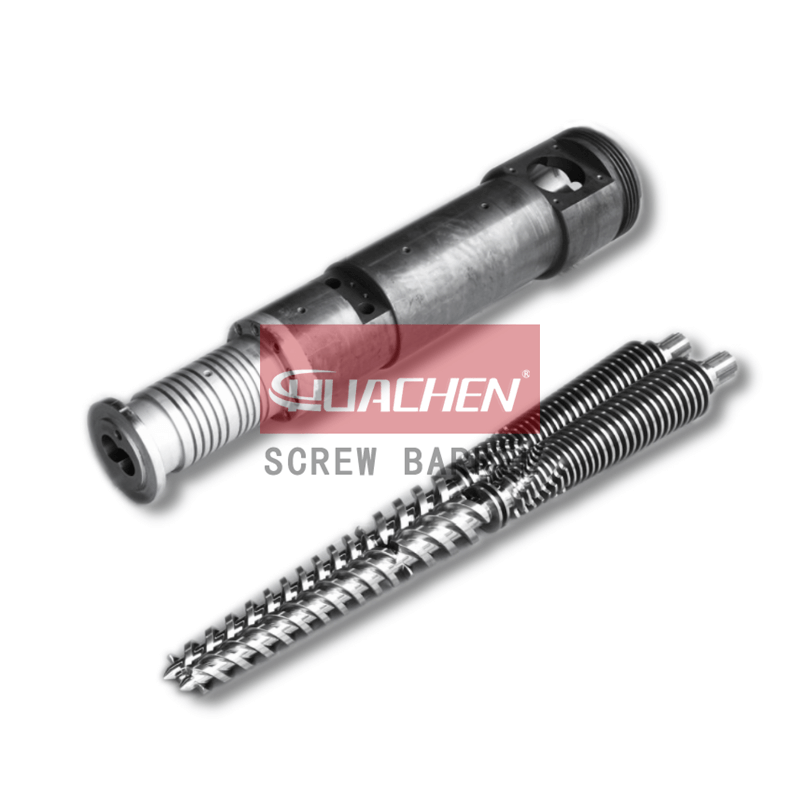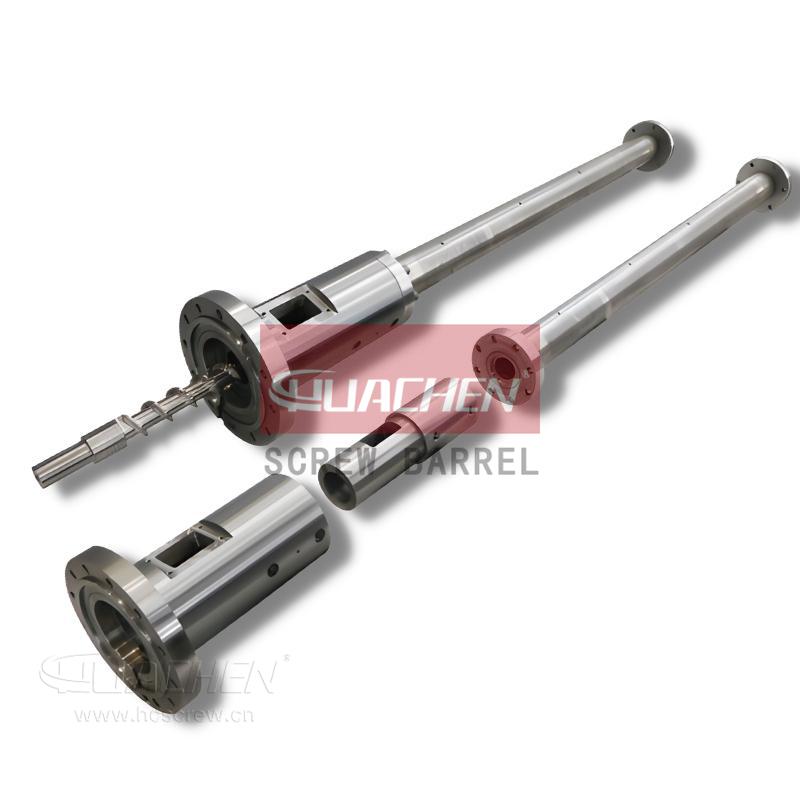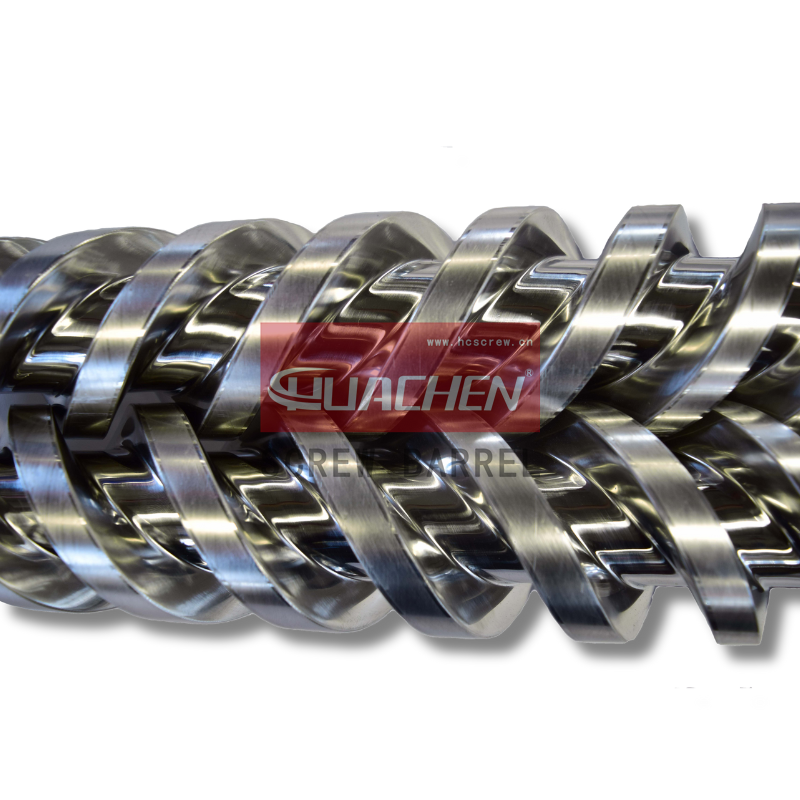3 Common Types And Causes Wear On Extruder Screw
Date:2022-6-10 Author:hcscrew
Extruder operators need to fully understand the screw and barrel they use and know how to maintain and utilize them effectively. A well-maintained screw barrel and extrusion system will perform better and last longer. To achieve this, we must first learn about the types of screw wear and their causes. Generally, screws wear in three different ways: adhesive wear, abrasive wear, and corrosive wear.
Types of Screw Wear
1. Adhesive Wear on Screws
Adhesive wear occurs when metal surfaces come into contact, such as the screws and the barrel. This happens when the barrel and screw surfaces briefly touch, get welded together, and then break apart, generating extremely high stress. You can often see this wear as burrs on the ends of screw prongs or missing overlay material from the top of screw prongs. Additionally, the barrel might show scratches or wear at the point where the screw is damaged.
- – Causes: Adhesion between the metal surfaces of the screw prongs and the inner surface of the barrel.
- – Indications: Burrs on screw prongs and scratches inside the barrel.
接触时,就会发生附着磨损_副本.jpg)
2. Abrasive Wear on Screws
Abrasive wear is very common in plastics machinery. When raw materials without fillers or low-viscosity polymers are processed, minimal abrasive wear occurs. However, when pellets are conveyed along the screw and squeezed against the barrel wall, it results in some wear on the screw prongs and barrel wall. Processing resins with fillers, additives, contaminants, or high-viscosity polymers can cause significant abrasive wear. Hard materials tend to remove material from softer surfaces, so screw prongs are usually made of hard alloys to resist wear.
- – Causes: Shearing action as polymers are conveyed forward and encounter compression against the barrel wall.
- – Indications: Wear at the screw root and glue channel back, especially when processing filled resins.

3. Corrosive Wear on Screws
Corrosive wear involves the gradual destruction of materials through chemical attacks. Corrosion happens when atoms on the metal surface oxidize, leading to the overall destruction of the screw and barrel. Once the metal surface is eroded, it becomes more vulnerable to mechanical wear. Corrosion is most common when extruding and processing materials like PVC or fluoropolymers, which strongly affect iron-based components.
- – Causes: Chemical attacks on metal surfaces, particularly from materials like PVC and fluoropolymers.
- – Indications: Corroded screw and barrel surfaces, making them more susceptible to further wear.

Introducing HUACHEN Screw
HUACHEN Screw, a leading screw barrel manufacturer in China, offers advanced solutions to combat these wear issues. Our new custom set of screws and barrels for PVC, launched in 2019, is designed to resist the corrosive effects of fluoropolymers during extrusion. These sets meet various PVC processing temperature requirements and individual customer needs.
Our corrosion-resistant solutions use nickel-chromium as the base material, with nickel-based alloys welded to the wear-prone surfaces of the screw prongs. For barrel treatment, HUACHEN recommends the SKD sleeve fitted barrel, known for its high corrosion and wear resistance. This combination ensures excellent production performance, especially in highly filled PVC materials.
Conclusion
Understanding the types and causes of screw wear is crucial for maintaining your extrusion equipment. By choosing the right materials and treatments, you can extend the life of your screws and barrels and improve your extrusion process.
If you encounter similar wear issues or have more questions, feel free to contact us at HUACHEN Screw, your professional screw barrel production experts.
You May Also Like
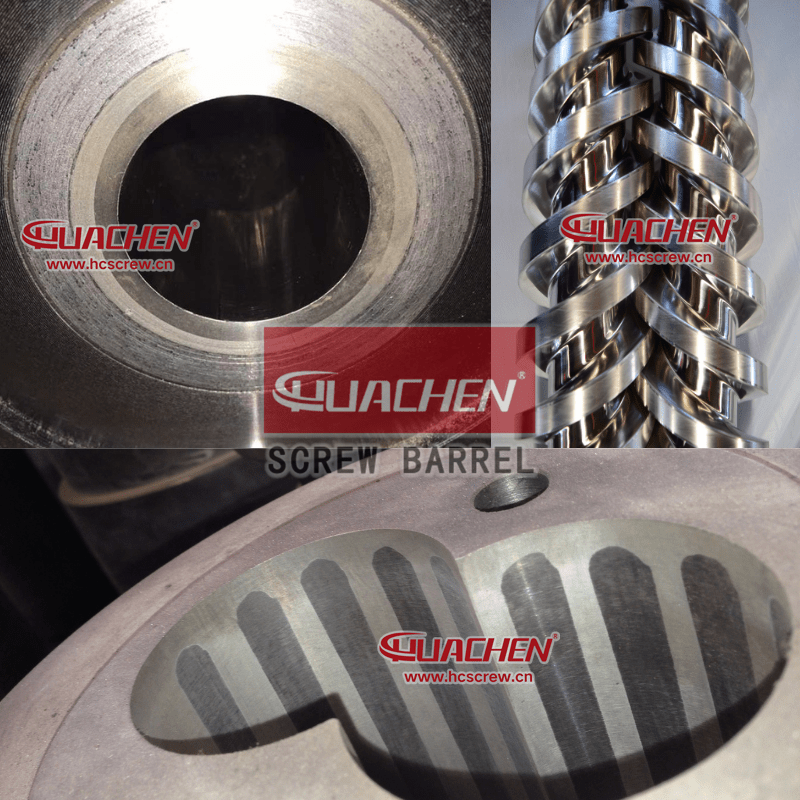 | Bimetallic Alloy Screw Barrel ↗ – Get details and the latest price of bimetallic alloy screw barrels. |
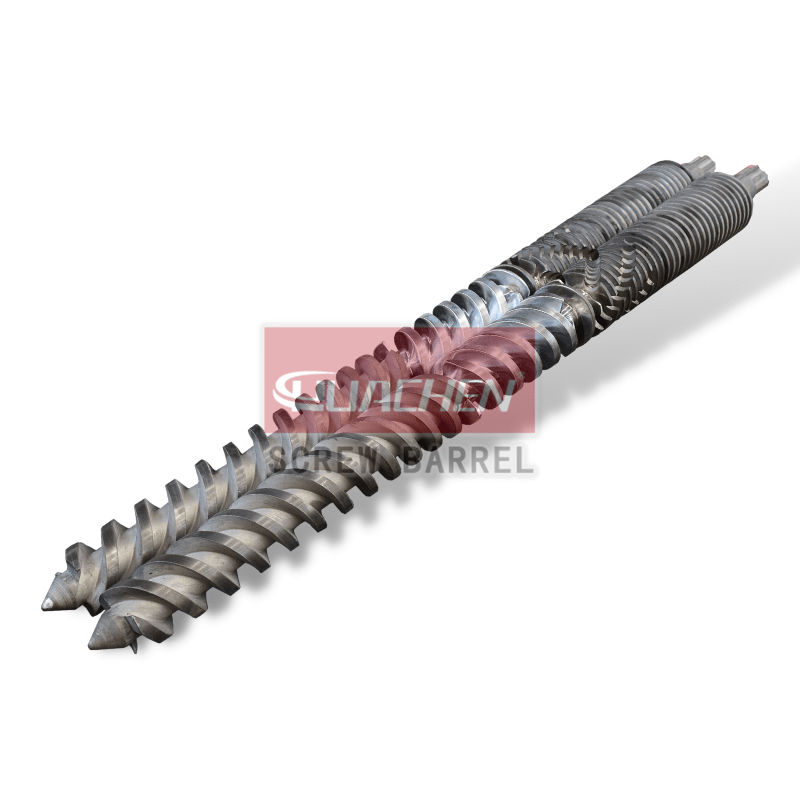 | Hard Chrome Plating Screw Barrel ↗ – Discover our range of hard chrome plating screw barrels. |
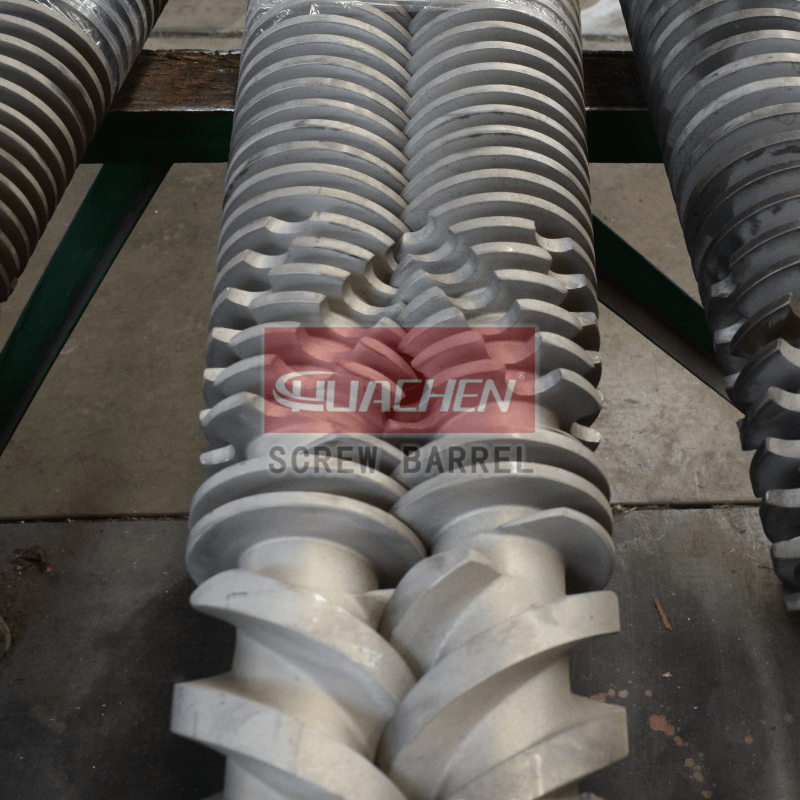 | Ceramic Coating Alloy Screw Barrel ↗ – Learn about our ceramic coating alloy screw barrels for SPC RVP. |
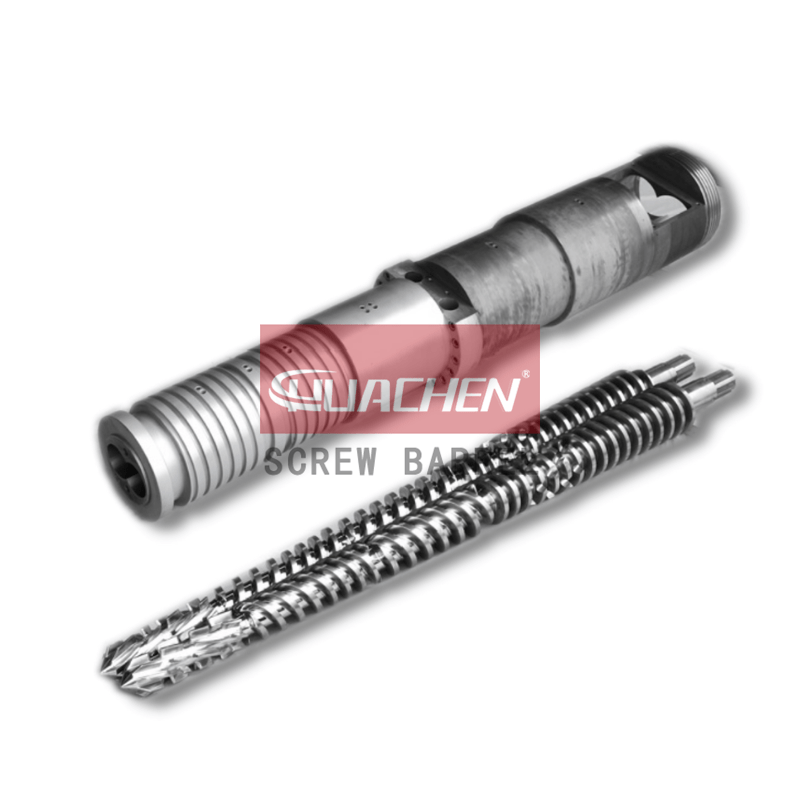 | SKD Screw Barrel ↗ – Find out more about our SKD sleeve fitted screw barrels for high-filled PVC twin screw extrusion. |
For more information and to get the latest prices on our products, visit HUACHEN Screw.
Tags
HUACHEN Screw Recent Post
- High-performance PVC Screw Barrel for Efficient Extrusion
- Durable Conical Twin Screw Barrel for Precision PVC Pipe Production
- High-Speed Screw Barrel for Increased Extrusion Efficiency
- Super Wear-Resistant Bimetallic Alloy Coating Screw Barrel for High Output Extruders
- High-Precision Parallel Twin Screw Barrel for Extrusion Excellence
- Top Quality Single Screw Barrels for Plastic Extrusion Applications
- High-quality Extruder Screw Barrel for Reliable Performance
- Efficient Plastic Extrusion Screw Barrel for Superior Output
Tag Clound
conical twin screw barrel extruder screw barrel extrusion screw barrel Foam sheet processing high speed screw barrel HUACHEN SCREW news injection screw barrel parallel twin screw barrel pa screw barrel pe making formula pe screw barrel plastic fiber processing plastic fibre screw barrel Plastic film making screw barrel plastic pipe processing Plastic profile processing Plastic raw material knowledge pp screw barrel PVC making formula pvc screw barrel related parts for screw barrel screw barrel engineering work screw barrel knowledge single screw barrel twin screw barrel
;